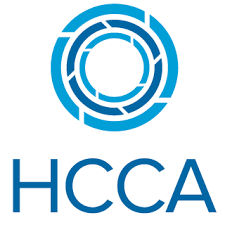Last week WLC member Suzanne Durrell discussed whistleblowers at the 25th Annual Health Care Compliance Association (HCCA) Compliance Institute. The panel was titled “Whistleblowers: Who are They and Why do they Become Whistleblowers and How Do You Evaluate a Whistleblower Case?”
More than 12,000 healthcare compliance members who work in, with, or in support of healthcare organizations comprise the HCCA. Its annual Compliance Institute addresses real‑world compliance issues, emerging trends, and practical applications for members.
Whistleblowers: Who are They and Why do they Become Whistleblowers and How Do You Evaluate a Whistleblower Case
Jeb White, the President of Taxpayers Against Fraud moderated the lively discussion. The panelists included:
- Suzanne Durrell, Managing Member, Whistleblower Law Collaborative LLC.
- Scott Simmer, Managing Partner, DC Office, Baron & Budd.
- Jordan Thomas, Partner, Labaton Sucharow.
The panel explored several topics including:
- Why employees become whistleblowers.
- How to advocate for a compliance culture that encourages internal reporting.
- How to recognize concerns that devolve into whistleblower cases.
- The key factors that make an actionable whistleblower case under the False Claims Act (FCA), or the Securities and Exchange Commission (SEC) whistleblower program.
We discuss the panel’s thoughts on best practices for successful compliance culture here.
We discuss the panel’s thoughts on how compliance officers can become whistleblowers here.
Effective Compliance Programs are Key to Preventing Fraud and Retaliation
Health care compliance professionals are on the front lines of health care enforcement. The importance of a successful compliance program has been recognized by the Department of Justice and by the Office of Inspector General for the Department of Health and Human Services through guidance, and Corporate Integrity Agreements.
As whistleblower attorneys, we appreciate the unique challenges compliance professionals face, and are committed to doing our part to help them succeed. Our firm is dedicated to fraud enforcement and representing whistleblowers. But equally important to us is protecting employees from retaliation and preventing fraud from happening (which ironically would put us out of business). To that end, we periodically participate in events focused on how companies can maintain effective compliance programs, ones that prevent fraud against the government and retaliation against whistleblowers. The 25th Annual Health Care Compliance Association Institute was the latest example of our commitment to this area.

